
Pinku from 1965.
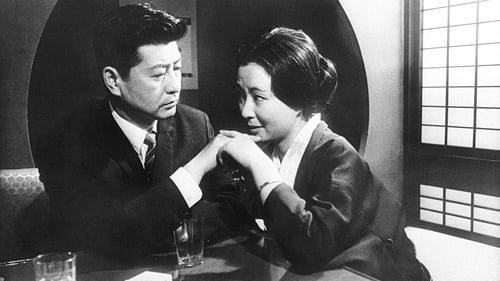
"When human beings venture too far along a trail made by wild beasts, it is said, they quite often discover themselves on a road of no return." Based on the novel of the same name by Seichô Matsumoto.

Kazuko Matsuo sings the theme song to this drama film.
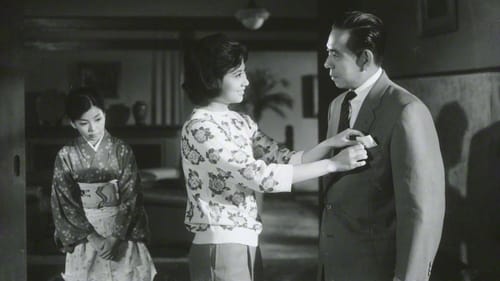
At the end of the Greater East Asia War, young Amada Koichi and his father were wrongfully accused as spy suspects and his father died in prison after being tortured. Ten years later, Amada seeks for revenge on the three men responsible for his father death.

Two women, an undercover cop, and a leader of the group of rude girls, defy the smuggling syndicate.

Kibe
Tired of poverty, Keiko leaves home and soon takes a lover, but leads a wanton life without paying heed to his advice. However, the younger sister Yoshiko, is an innocent and kind girl. One day, with the sudden death of their mother in a car accident, Keiko learns that she and Yoshiko are actually stepsisters, and that she is the daughter of a murderer. She now plans extortion from Yoshiko's true father who is the president of a well-known trading company.

After the massacre of Christians at Shimabara, followers of Amakusa Shiro band together in a plot to overthrow the shogunate in order to exact revenge on the Tokugawa. At the same time there is a succession dispute in the Kuroda clan, as one faction tried to usurp the rightful heir and take over the honored clan. Before his untimely death, the lord of the Kuroda bestowed “Nihongo”, a magnificent spear, on his finest warrior, which ultimately brings him into contact with two of Japan’s most famous historical figures, Yagyu Jubei and Miyamoto Musashi. Can the three masters of martial art join forces to defeat their enemies and save the nation?

Dr. Tagawa
Shintoho crime film directed by Kyotaro Namiki.

Japanese thriller.

Detective Inoue
Freelance reporter “Scoop” Machida is hot on the trail of a prostitution ring called the Black Line, when he is framed for the murder of a young woman. Forced to clear his own name, the handsome journalist sinks deeper into the Black Line’s rotten swamp of drugs, prostitution, and murder and finds unexpected help in Maya, a steamy female gambler familiar with the neon-lit streets, shadowy alleyways, and seedy nightclubs he must navigate. The closest film in the Line series to classic American film noir, Ishii’s Black Line is a pulpy assortment of crime film conventions including the starkly expressionistic black and white cinematography by Jûgyô Yoshida, a jazzy music score by Michiaki Watanabe, and a sleazy screenplay by Ishii and Ichirô Miyagawa.

Japanese film.

This time around, Sashichi is investigating a case of serial murders believed to be perpetrated by a giant bear.

In the northern province, two waitresses Mieko and Hanako from Tokyo, are missing somewhere near the River Kitakami. At night, the villagers of Shirayama gather round a blazing fire, and utter incantations while an old headman tempers a sword...

The treasures of the Aoyamas were buried at the bottom of the sea when a large earthquake occurred years before. Yumi Aoyama is the only person who knows the location, but her family dies one after another through curious incidents, as if the family were under a curse. Yumi is surprised by the ghost of a dead sister who looks the same as the grim figure who jumped into the old well alter stabbing herself with a sword. Fearful that a similar fate awaits her, Yumi seeks the help of her friend Kyoko. Later the ghost appears before Kyoko and her fiancé, Detective Nonomiya. In a haunted cave, Kyoko and Yumi are in deadly peril from those who seek treasures of the Aoyamas.

Accounting Director
Yuri is looking forward to marrying her fiancé Minoru. However, a few days before the wedding she falls victim to his brother Takehiko, and against her will, she becomes Takehiko's wife. The day after the wedding, Yuri begins her silent revenge by not talking to her husband. She retains her love for Minoru and never gives herself to Takehiko's embrace again. She also contributes large sums of money from Takehiko's fortune to charity.
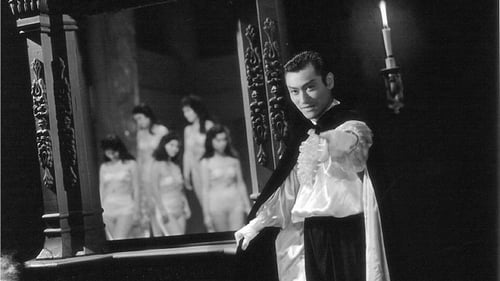
Namiki
Tamio takes Itsuko to an art gallery and the two find one painting is a nude portrait of Itsuko's mother, who disappeared twenty years ago when she was just a baby. No one knows the first thing about the artist who painted it, but he goes by the name Shiro Sofue, and he's always wearing shades in the daytime...
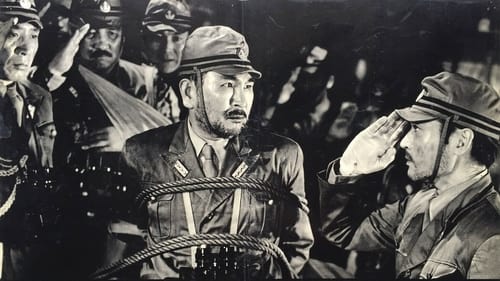
Counselor Inoue
In 1941, overpopulated Japan faces an economic boycott and its armed forces push further to the south. And despite negotiations between Japan and the U. S. A. war is declared with the attack on Pearl Harbour. Victories follow for Japan on land and sea and her forces push forward to the borders of India. But gradually the tide turns in favour of the Allies and after the atom bombings of Hiroshima and Nagasaki, Japan is compelled to accept the Potsdam Declaration and by the order of the Emperor agrees to unconditional surrender. Under the supervision of the occupation forces the International Military Tribunal opens in Tokyo to try the Japanese war leaders. Established in the cause of justice, and to prevent future aggressive wars the trials drag on for two and a half years. And on December 23, 1948, General Tojo and six other war leaders mount the thirteen steps to the gallows at Tokyo's Sugamo prison.
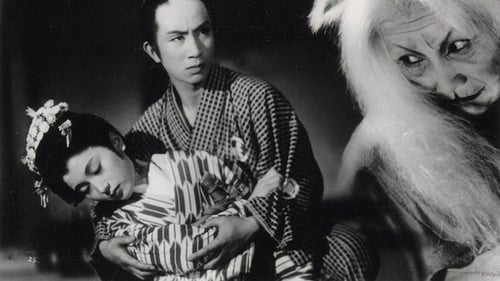
Kenichi (segment "Present Day")
The descendant of the servant of a cruel and vicious samurai returns to the town where she was born, only to find that a cat who is possessed by the spirits of those murdered by the samurai is trying to kill her.

Japanese comedy film.

The 5th Super Giant film. Super Giant pursues a Nazi-like army that operates on a huge satellite in space. The satellite is armed with weapons that could destroy whole cities on Earth from afar. (Part 1 of 2)

Harada Kai, the Date clan's Chamberlain attempts to take power from the lord himself.

The 4th Super Giant film, in which he continues his fight against the Kapia Aliens (Part 2 of 2)

The 3rd Super Giant film, in which he saves Earth from the threat of the reptile-like Kapia Aliens.

MP Captain Ibe
The year is 1937, and it has been six months since the Sendai Infantry left for Manchuria. The rotted corpse of a young woman is found at the bottom of a well, but her face and limbs are gone. The military police begin an investigation and search fervently for the person responsible, but they can't even determine the victim's identity, much less find any clues. However, the incident is made public when newspapers give wide coverage to the story, so Staff Sergeant Kosaka is dispatched from Tokyo to solve the case. Eventually, General Tsunekichi is taken into custody by local infantrymen because of the testimony of another unit, but the spirit of the dead woman appears before Staff Sergeant Kosaka, who continues to investigate on his own...

The 2nd Super Giant film.
Super Giant continues his battle against the foreign terrorists. In return, they frame him for murder. (Part 2 of 2)
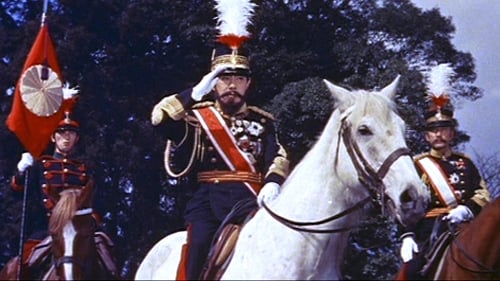
Finance Minister Sone
Meiji Tenno portrayed the ramp up to the Russo-Japan War. In addition to showing the political events that led to war, it also showed the era from the story of a farm family in rural Japan who sent their son off to war. As such, it could be considered an anti-war movie, showing how, while war is devised by governments, the people do not really understand what war is, and it's combatants often do not know what they are fighting for.

Japanese comedy film.

A 1956 alien invasion tokusatsu film directed by Shinichi Sekizawa, the screenwriter noted for his immense contributions to Toho's Godzilla series by providing the screenplays/stories for the majority of the original Showa films.

Admiral Isoroku Yamamoto leads the Combined Fleet of the Imperial Japanese Navy to defeat the American Fleet.

Japanese sports comedy film about kendo.

Melodrama by Kiyoshi Saeki

Young man
Сугимото пытается вести праздный образ жизни, хотя в послевоенной Японии устранили все привилегии знатных семей, и фамильный герб больше никого не защищает. Поэтому жители в глаза называют этого пьяницу именем Сёсукэ Охара.

A love triangle among a girl, her poor boyfriend, and a rich company president.

Song of the White Orchid was a co-production of Toho and Mantetsu, the railway that served the colonial region of Manchuria, and the first film in the Kazuo Hasegawa/Shirley Yamaguchi (Ri Koran) “Continental Trilogy.” Handsome Hasegawa (representing Japan) runs up against an impertinent Yamaguchi (representing the continent); not surprisingly, in the course of the film the woman comes around and realizes the benevolent intentions of the Japanese. In Song of the White Orchid Yamaguchi leaves Hasegawa, who plays an expatriate working for the railway, because of a misunderstanding. She joins a communist guerilla group plotting to blow up the Manchurian railway. Learning of the subterfuge that led to the misunderstanding, she renews her faith in Hasegawa—and by extension Japan—and tries to undermine the plot.




















